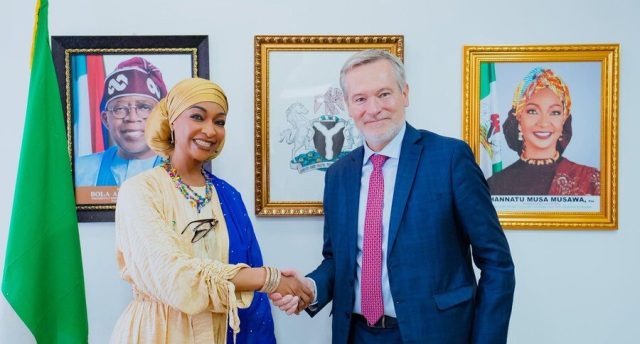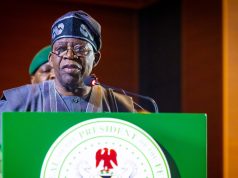Nigeria and the European Union have sealed a €20 million (Twenty Million Euro) initiative aimed at strengthening partnerships between museums, supporting film festivals, and advancing digital creative industries across the country.
This was disclosed in an official statement issued on Thursday by the Special Adviser on Media and Publicity to the Minister of Arts, Culture, Tourism and the Creative Economy.
According to the statement, the agreement was announced during a high-level visit by an EU delegation led by Ambassador Gautier Mignot, Head of the EU Delegation to Nigeria and ECOWAS, to Minister Hannatu Musa Musawa in Abuja.
The deal forms part of a broader push to harness Nigeria’s cultural assets as drivers of economic growth, job creation, and national unity. Both parties emphasized the importance of international cultural cooperation as a vehicle for development.
“Nigeria and the European Union have agreed on a €20 million (Twenty Million Euro) initiative to strengthen partnerships between museums and support film festivals and digital creative industries.
“The initiative was made known on Thursday in Abuja, when a high-level delegation from the European Union led by the EU Ambassador to Nigeria and ECOWAS Ambassador Gautier Mignot, paid a courtesy visit to the Minister of Art, Culture, Tourism and Creative Economy, Barrister Hannatu Musa Musawa.
“The agreement is part of a broader effort to harness Nigeria’s rich cultural heritage to drive economic growth, create jobs, and promote national unity,” the statement read in part.
As part of the initiative, Minister Musawa revealed ongoing plans to produce a “Unity Song” featuring leading Nigerian artists. The song is expected to promote national cohesion and address security concerns through the power of music.
More insights
The statement further noted that the meeting also spotlighted upcoming plans to host a Creative Economy Summit, designed to convene key stakeholders across Nigeria’s cultural and creative sectors. The summit aims to foster strategic coordination, attract investment, and prevent duplication of efforts, thereby strengthening the overall ecosystem.
- Minister Musawa emphasized the importance of data-driven policymaking, stating that comprehensive cultural data mapping will be essential to guide targeted interventions, measure impact, and ensure more efficient resource allocation across the creative economy.
- Both the EU and the Nigerian government reaffirmed their joint commitment to deepening collaboration in critical areas such as capacity building, digital skills development, infrastructure support, and youth employment.
They also agreed to ensure that future cultural initiatives reflect international best practices while remaining tailored to Nigeria’s unique cultural identity, economic goals, and community needs.











